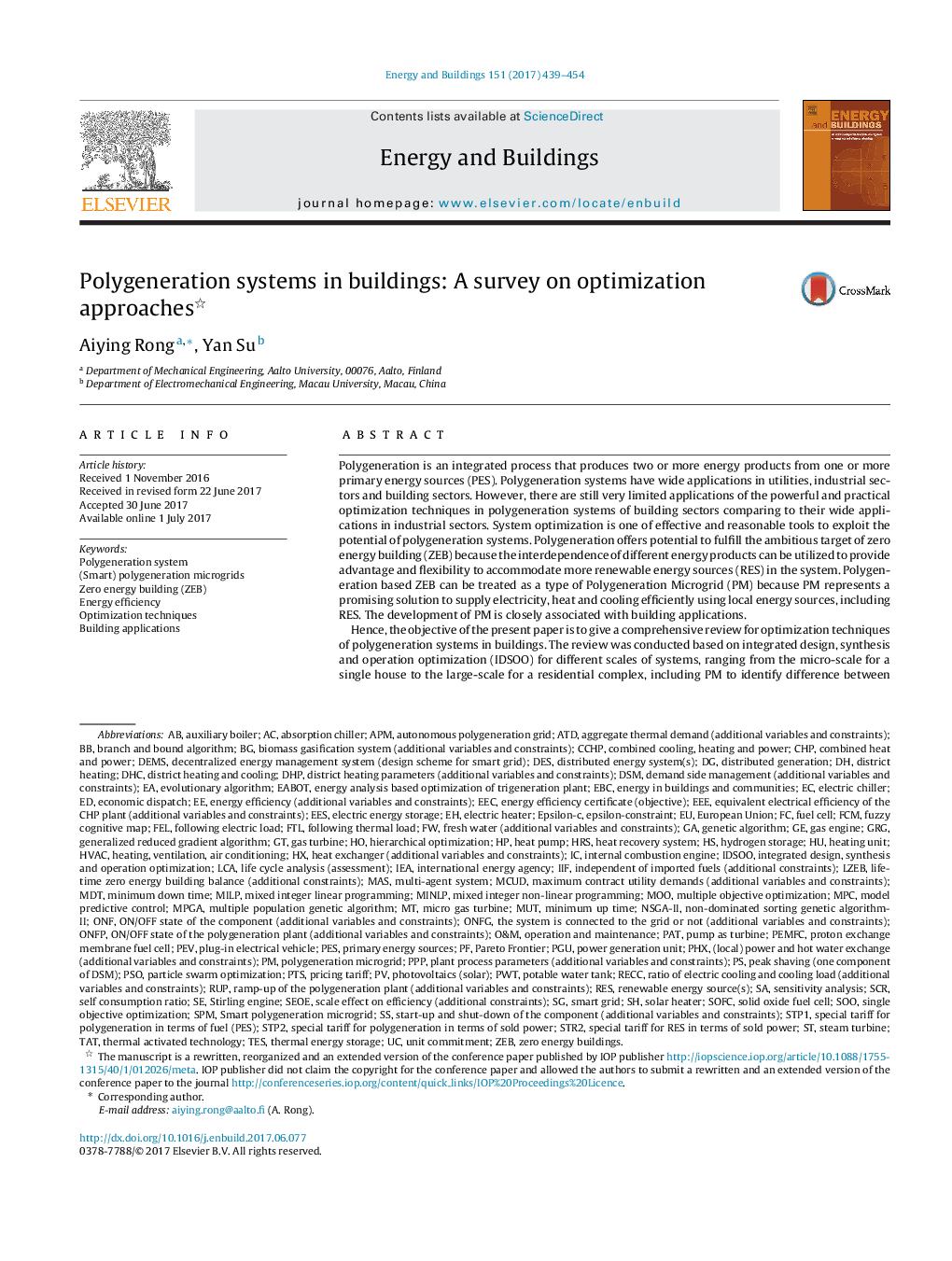| کد مقاله | کد نشریه | سال انتشار | مقاله انگلیسی | نسخه تمام متن |
|---|---|---|---|---|
| 6481153 | 1428939 | 2017 | 16 صفحه PDF | دانلود رایگان |

- Challenges for polygeneration optimization for building applications.
- (Smart) polygeneration microgrid for building applications.
- Characteristics of optimization for micro- and small-scale polygeneration systems.
- Optimization techniques for micro- and small-scale polygeneration systems.
- Visons for (Smart) Polygeneration (Microgrid) optimization.
Polygeneration is an integrated process that produces two or more energy products from one or more primary energy sources (PES). Polygeneration systems have wide applications in utilities, industrial sectors and building sectors. However, there are still very limited applications of the powerful and practical optimization techniques in polygeneration systems of building sectors comparing to their wide applications in industrial sectors. System optimization is one of effective and reasonable tools to exploit the potential of polygeneration systems. Polygeneration offers potential to fulfill the ambitious target of zero energy building (ZEB) because the interdependence of different energy products can be utilized to provide advantage and flexibility to accommodate more renewable energy sources (RES) in the system. Polygeneration based ZEB can be treated as a type of Polygeneration Microgrid (PM) because PM represents a promising solution to supply electricity, heat and cooling efficiently using local energy sources, including RES. The development of PM is closely associated with building applications.Hence, the objective of the present paper is to give a comprehensive review for optimization techniques of polygeneration systems in buildings. The review was conducted based on integrated design, synthesis and operation optimization (IDSOO) for different scales of systems, ranging from the micro-scale for a single house to the large-scale for a residential complex, including PM to identify difference between traditional systems and PM in terms of optimization. The literature was classified according to solution techniques of IDSOO and characteristics of IDSOO in terms of decision variables, objective functions and constraints. The results showed that there is no significant difference between traditional systems and PM in terms of solution techniques while there is subtle difference between traditional systems and PM in terms of objective function and constraints. Optimization of PM has higher requirements for real-time management to integrate more RES. Optimization of micro- and small-scale systems are more complicated than large-scale ones because there are many constraints from technical, legal and policy viewpoints.
Journal: Energy and Buildings - Volume 151, 15 September 2017, Pages 439-454